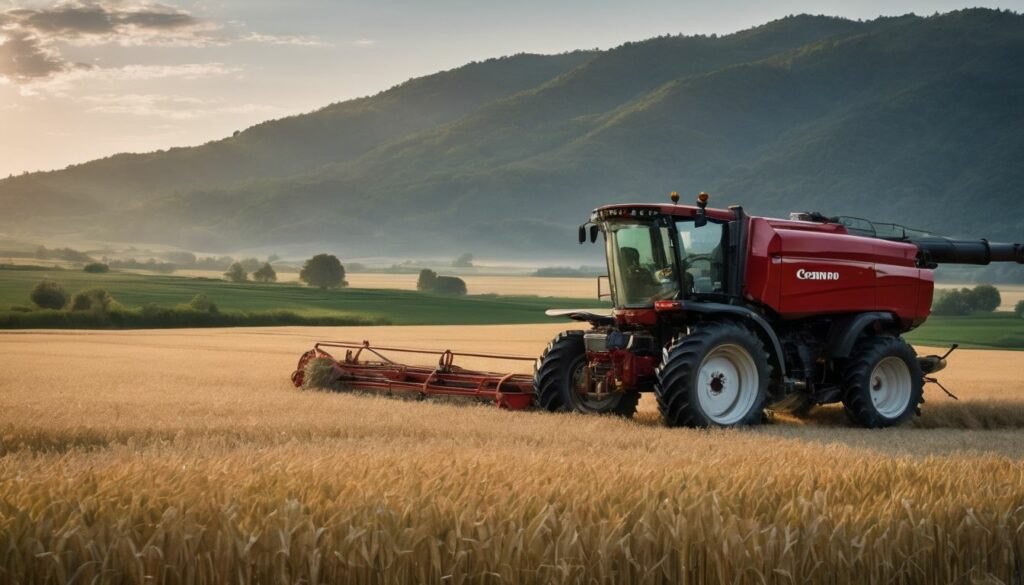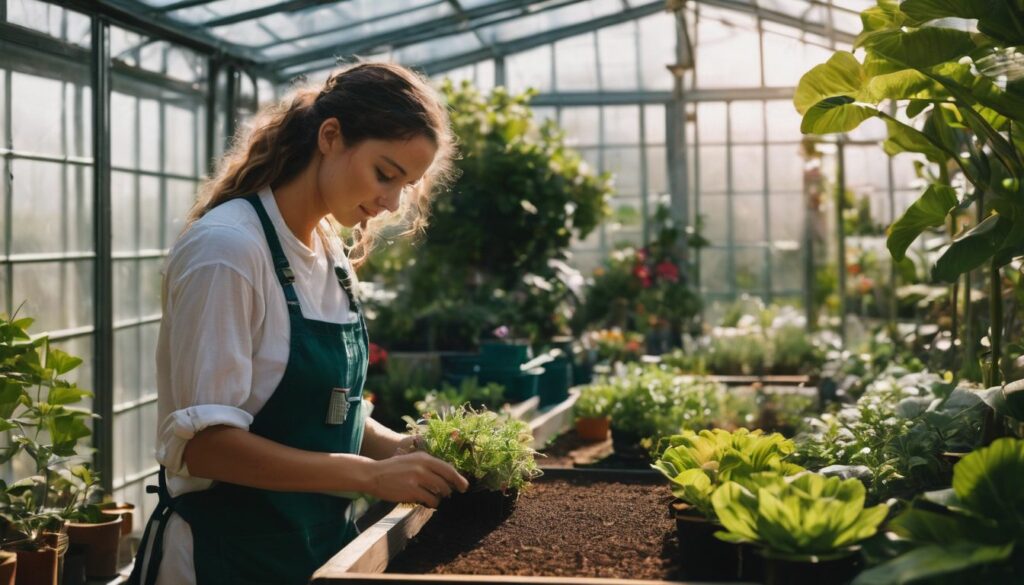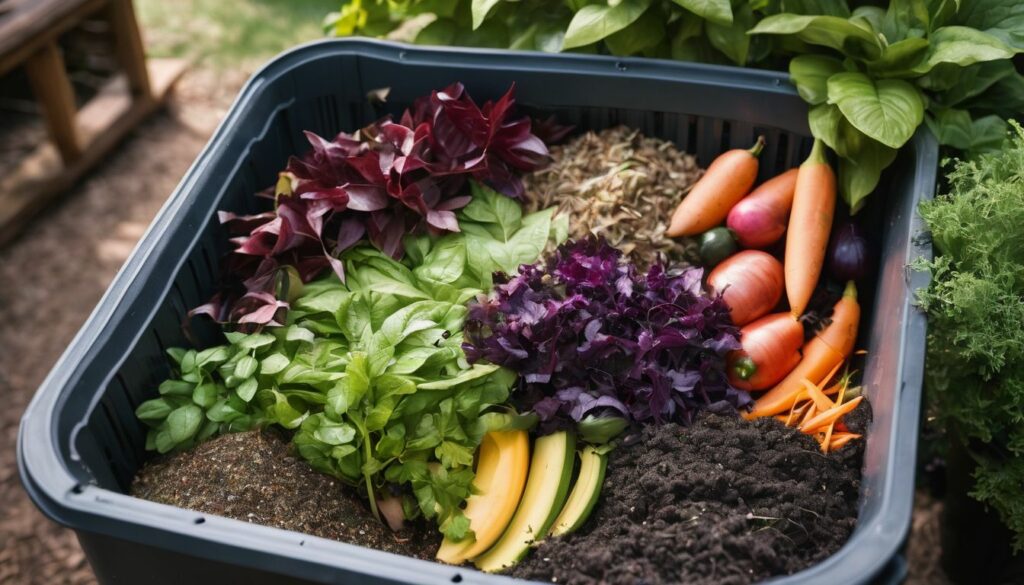Looking for the perfect plot of land to start your farming dreams can seem like trying to find a needle in a haystack, right? Believe me, I’ve walked in those boots and navigated through the labyrinth of Arizona farms up for sale.
Dealing with zoning challenges and water shortages along the way, has been quite an adventure! This blog is here to help you turn any fears into forward action by providing valuable insights on types of farms, key considerations before purchasing property, tips to spot the suitable farm for you and various financing options.
So get ready- it’s time to sow seeds for a fruitful future in farming! Let’s roll up our sleeves and dig into this together!
Key Takeaways
- There are three main types of farms to consider before buying: working farms, hobby farms, and point farms.
- Important factors to consider before buying a farm include location, size, infrastructure, zoning and water rights, and the required skillset.
- Working with a mentor and utilizing a business plan can be beneficial when buying land for farming.
- Financing options for buying a farm include applying for a mortgage online or working with specialty Real Estate Investment Trusts (REITs).
Types of Farms to Consider Before Buying
There are three main types of farms to consider before buying: working farms, hobby farms, and point farms.
Working Farms
Working farms are busy places. They grow food, raise animals, and sell their goods. To keep up with all of this work, they often have larger plots of land and more equipment than other types of farms.
Running a working farm is not for the faint-hearted! It demands hard work and time from sunrise to sunset. Before buying one, make sure that you’re ready for the task ahead.
Hobby Farms
Hobby farms are a popular choice for individuals who want to enjoy the benefits of farming without relying on it as their main source of income. These small-scale farms are typically run by people who have other jobs or professions and use farming as a way to pursue their passion for agriculture.
Hobby farmers usually focus on growing crops, raising livestock, or both, but on a much smaller scale compared to commercial operations. The emphasis is more on enjoying the process and reaping the rewards of their hard work rather than making a significant profit.
Hobby farms can be an excellent way to connect with nature, provide fresh produce for personal consumption, and even generate some additional income through selling surplus goods at local markets or to friends and neighbors.
Point Farms
Point Farms are a type of farm that is typically situated on or near a point of land, such as a peninsula or headland. These farms have the advantage of being surrounded by water on multiple sides, which can provide several benefits for farming operations.
The proximity to water allows for easy access to fishing and other aquatic resources, making it ideal for aquaculture activities. Additionally, the surrounding water bodies can help regulate temperature and provide natural irrigation for crops.
Point Farms also offer stunning views and potential recreational opportunities, making them attractive options for those looking to combine farming with a scenic lifestyle. When considering purchasing a Point Farm, it is important to evaluate factors like soil quality and the availability of infrastructure such as roads and utilities.
Factors to Consider Before Buying a Farm
Before making a decision to buy a farm, there are several important factors you need to consider such as location, size, infrastructure, zoning and water rights, and the required skillset.
Location
Finding the right location for your farm is crucial. You want to choose a location that suits your farming needs and goals. Factors to consider include proximity to markets, access to transportation routes, availability of water, climate suitability for crops or livestock, and zoning regulations.
Researching potential locations thoroughly will help you make an informed decision and set yourself up for success in your farming venture.
Size
Size is an important factor to consider when buying land for farming. You need to determine how much acreage you require based on your farming goals and plans. Smaller farms are suitable for hobby farming or growing crops for personal use, while larger farms are needed for commercial-scale operations.
Consider the size of the property in relation to the type of farm you want to establish and the amount of work you can handle. Additionally, keep in mind that larger farms may require more investment, resources, and manpower.
It’s important to find a balance between the size of the farm and your capabilities to ensure a successful farming venture.
Infrastructure
When buying a farm, it’s important to consider the infrastructure that comes with the property. This includes things like buildings, fences, irrigation systems, and utilities. The quality and condition of these structures can have a significant impact on your ability to operate a successful farm.
It’s crucial to assess the existing infrastructure and determine if any repairs or upgrades will be necessary. Additionally, you should consider whether the infrastructure aligns with your farming goals and needs.
For example, if you plan to raise livestock, having appropriate barns or shelters is essential. Understanding the existing infrastructure will help you make an informed decision about the suitability of a farm for your specific needs.
Zoning and Water Rights
When buying land for farming, it’s essential to consider the zoning and water rights of the property. Zoning regulations dictate how the land can be used, including whether it can be used for agricultural purposes.
It’s important to research the zoning laws in your area to ensure that you can legally operate a farm on the land you are interested in purchasing. Additionally, water rights are crucial for farming as access to sufficient water is necessary for irrigation and crop cultivation.
Understanding the water rights associated with a property will help determine if there are any limitations or restrictions on its use.
Skillset Required
To buy and run a farm successfully, there are certain skills that you need to have. First, you should have knowledge in agricultural practices such as crop cultivation and animal husbandry.
Understanding soil quality and how to improve it is also important. Additionally, having basic carpentry and plumbing skills will be helpful for maintaining the farm’s infrastructure.
It’s essential to be able to handle machinery and operate irrigation systems effectively. Finally, good business acumen is necessary for managing finances, marketing your products, and making strategic decisions for the farm’s growth.
Finding the Right Property
When searching for the right property to purchase for farming, it is important to work with a mentor who can provide guidance and support throughout the process. Additionally, utilizing a business plan will help determine the specific needs and goals for your farm.
Look for properties that have preapproval from lenders or financing options already available, and make sure to ask the right questions about infrastructure, zoning, water rights, and any other factors that are important to your farming operation.
Working with a Mentor
Finding a mentor who has experience in farming can be extremely valuable when buying land. A mentor can provide guidance and advice based on their own farming experiences, helping you avoid common mistakes and navigate the complexities of starting a farm.
They can also offer insights into local farming practices, resources, and networking opportunities. Working with a mentor allows you to tap into their knowledge and expertise, giving you a better chance at success as you embark on your farming journey.
Utilizing a Business Plan
In order to successfully buy land for farming, it is important to utilize a business plan. A business plan helps you outline your goals, strategies, and financial projections for your farm.
It can also be beneficial when seeking financing options or applying for grants. By creating a detailed business plan, you can demonstrate the viability of your farming venture and show potential lenders or investors that you have thought through the necessary steps to make your farm successful.
Remember to include information about your target market, marketing strategies, production plans, and projected expenses and profits in your business plan.
Looking for Properties with Preapproval
When searching for properties to buy for farming, it is important to look for ones that have preapproval. This means that the property has already been evaluated by a lender and deemed eligible for a loan.
It can make the buying process smoother and give you confidence in your purchase. Preapproval also shows sellers that you are serious about buying and have financial backing. So, when looking at potential farms, be sure to ask if they have preapproval and consider these properties as top choices.
Asking the Right Questions
When buying a farm, it’s essential to ask the right questions to ensure you make an informed decision. Some important questions to consider include:.
1. What is the history of the property? Understanding if there were any previous environmental issues or use of pesticides can help assess potential risks.
2. What are the zoning regulations and restrictions? Knowing how the land can be used and if there are any limitations on farming activities is crucial.
3. Does the property have water rights? Access to water for irrigation purposes is vital for successful farming, so understanding your rights in relation to water usage is important.
4. Are there any easements or encumbrances on the property? Easements may impact your ability to fully utilize certain areas of the land, so it’s important to clarify this upfront.
Financing Options for Buying a Farm
When it comes to financing options for buying a farm, there are several routes you can take.
Applying for a Mortgage Online
Applying for a mortgage online can be a convenient and efficient way to finance the purchase of your farm. Many lenders now offer online applications that allow you to submit your financial information electronically.
This saves time and eliminates the need for in-person meetings or paper documents. Additionally, applying online may give you access to a wider range of mortgage options and competitive interest rates.
It’s important to gather all necessary financial documents beforehand, such as tax returns and bank statements, to streamline the application process. With careful research and preparation, applying for a mortgage online can help make buying land for farming more accessible and manageable.
Working with Specialty REITs
When considering financing options for buying a farm, one option to consider is working with specialty Real Estate Investment Trusts (REITs). These REITs specialize in investing in farmland and agricultural properties.
By partnering with them, you can access their expertise and financial resources to help fund your farm purchase. Specialty REITs often have extensive knowledge of the agricultural industry and can provide guidance throughout the process.
Additionally, they may offer flexible financing terms that are tailored to the unique needs of farmers. Working with specialty REITs can be a viable option for those looking to finance their farming dreams without traditional bank loans or mortgages.
Investing in Farmland through Crowdfunding
Investing in farmland through crowdfunding is a more accessible way to become a part of the agricultural industry. By pooling funds with other investors, individuals can contribute smaller amounts and still have a stake in valuable farmland.
Crowdfunding platforms connect investors with farm projects seeking funding, allowing them to support sustainable agriculture and potentially earn returns on their investment. This method also provides opportunities for diversification by investing in different types of crops or regions.
It’s important to research and choose reputable crowdfunding platforms that align with your investment goals and risk tolerance.
Conclusion: The Importance of Firsthand Experience and Additional Resources for Buying a Farm
In conclusion, buying land to farm requires careful consideration and research. This guide provides all the necessary information for beginners to make an informed decision. By utilizing firsthand experience and additional resources, individuals can confidently navigate the process of purchasing a farm and embark on their farming journey successfully.
Happy farming!
FAQs
1. What is a beginner’s guide to farming when it comes to land purchase?
A beginner’s guide to farming for land purchase covers the basics of buying agricultural land such as rural property, farmland investment and government grants for land purchase.
2. How can I find a suitable small farm or hobby farm?
Looking at listings like Arizona farms for sale could help you in finding land that fits your needs for a small farm or homesteading purposes.
3. Can I rent instead of using farm financing for purchasing farmland?
Yes, renting land for farming is an option if buying outright seems tough. It gives one hands-on experience before making an actual farmland investment.
4. What should I keep in mind while looking at farming as an investment opportunity?
Before diving into rural land investment or buying agricultural lands, knowing about things like funding options, government grants, and the rules around purchasing are key steps.
5. Why do we need knowledge on Land zoning and Land surveying while acquiring farm infrastructure?
Understanding land zoning helps you know what uses are allowed on the property you buy; Land surveying lets you map out your exact boundaries which is important when setting up your farming infrastructure.





